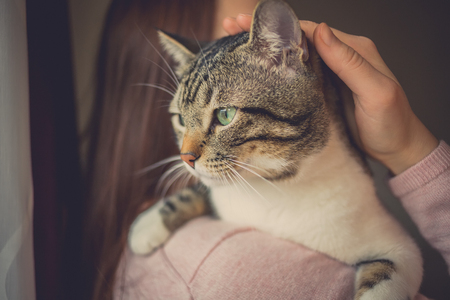1. Introduction to Vaccine-Preventable Diseases
Vaccinations play a crucial role in keeping our beloved dogs and cats healthy. Just like humans, pets are susceptible to various infectious diseases that can cause serious health complications or even be fatal. Fortunately, many of these illnesses can be prevented through proper vaccination.
Why Are Vaccinations Important?
Vaccines help prepare a pets immune system to recognize and fight off harmful viruses and bacteria before they cause illness. By vaccinating your pet, you are not only protecting them from severe diseases but also reducing the spread of contagious infections among animals and even humans in some cases.
How Do Vaccines Work?
Vaccines contain antigens that mimic disease-causing organisms without actually causing the disease. When administered, they stimulate the immune system to develop a defense mechanism, so if the pet is ever exposed to the real virus or bacteria, their body is ready to fight it off effectively.
The Role of Vaccinations in Public Health
Beyond individual pet health, vaccinations contribute significantly to public health by preventing the spread of zoonotic diseases—those that can be transmitted between animals and humans. For instance, rabies vaccination is not only required by law in many areas but also essential in preventing a deadly virus from spreading within communities.
Core vs. Non-Core Vaccines
Veterinarians classify vaccines into two main categories: core and non-core vaccines. Core vaccines are recommended for all pets due to the widespread risk of certain diseases, while non-core vaccines are given based on a pet’s lifestyle and potential exposure risks.
| Vaccine Type | Description |
|---|---|
| Core Vaccines | Essential for all pets regardless of location or lifestyle. |
| Non-Core Vaccines | Recommended based on an individual pet’s environment and activities. |
By understanding the importance of vaccinations, pet owners can make informed decisions about their furry friends healthcare. Consulting with a veterinarian ensures that each pet receives the appropriate vaccines at the right time, providing them with lifelong protection against preventable diseases.
2. Core Vaccines for Dogs
Core vaccines are essential for all dogs, regardless of their lifestyle or location. These vaccines protect against highly contagious and potentially fatal diseases. Below is a breakdown of the core vaccines recommended for dogs.
Rabies
Rabies is a deadly virus that affects the nervous system of mammals, including dogs and humans. It is transmitted through bites from infected animals and is almost always fatal once symptoms appear. Vaccination is required by law in most states and is crucial for both pet and public safety.
Canine Distemper
Distemper is a highly contagious viral disease that affects a dogs respiratory, gastrointestinal, and nervous systems. It spreads through airborne exposure or direct contact with infected animals. Symptoms include fever, nasal discharge, coughing, seizures, and paralysis. Vaccination is the best way to prevent this serious disease.
Canine Parvovirus
Parvovirus is a severe and often fatal disease that primarily affects puppies and unvaccinated dogs. It spreads through contact with contaminated feces or surfaces. Symptoms include vomiting, diarrhea (often bloody), lethargy, and dehydration. The parvo vaccine provides strong protection against this devastating illness.
Canine Adenovirus (Hepatitis)
Adenovirus type 1 causes infectious canine hepatitis, which affects the liver, kidneys, spleen, and lungs. It spreads through bodily fluids such as saliva and urine. Symptoms range from mild fever to severe liver damage, which can be fatal. The vaccine also protects against adenovirus type 2, which causes respiratory infections.
Core Vaccine Schedule
| Vaccine | Initial Dose | Booster Frequency |
|---|---|---|
| Rabies | 12-16 weeks old | Every 1-3 years (as required by law) |
| Distemper | 6-8 weeks old, then every 3-4 weeks until 16 weeks old | Every 1-3 years |
| Parvovirus | 6-8 weeks old, then every 3-4 weeks until 16 weeks old | Every 1-3 years |
| Adenovirus (Hepatitis) | 6-8 weeks old, then every 3-4 weeks until 16 weeks old | Every 1-3 years |

3. Core Vaccines for Cats
Keeping your cat protected from preventable diseases is an essential part of responsible pet ownership. Core vaccines are those recommended for all cats, regardless of their lifestyle, as they protect against highly contagious and potentially deadly diseases. The key core vaccines for cats include rabies, feline herpesvirus (FHV-1), calicivirus, and panleukopenia.
Rabies Vaccine
Rabies is a fatal viral disease that affects the nervous system of mammals, including cats and humans. It spreads through bites from infected animals. In many areas, rabies vaccination is legally required due to its risk to both pets and people.
Feline Herpesvirus (FHV-1) Vaccine
This virus causes feline viral rhinotracheitis (FVR), a major contributor to upper respiratory infections in cats. Symptoms include sneezing, eye discharge, and nasal congestion. Once infected, cats can carry the virus for life, with periodic flare-ups.
Feline Calicivirus (FCV) Vaccine
Calicivirus also contributes to upper respiratory infections in cats but can additionally cause painful ulcers in the mouth. Some strains lead to severe systemic infections affecting multiple organs. Vaccination reduces the severity and spread of this disease.
Feline Panleukopenia (FPV) Vaccine
Also known as feline distemper, this highly contagious virus attacks rapidly dividing cells in a cat’s body, especially in the intestines and bone marrow. It causes severe vomiting, diarrhea, fever, and a weakened immune system. Kittens are especially vulnerable.
Core Vaccines Overview
| Disease | Main Symptoms | Transmission |
|---|---|---|
| Rabies | Nervous system issues, aggression, paralysis | Bites from infected animals |
| Feline Herpesvirus (FHV-1) | Sneezing, eye/nose discharge, fever | Aerosol droplets, direct contact |
| Feline Calicivirus (FCV) | Mouth ulcers, respiratory symptoms | Aerosol droplets, contaminated objects |
| Feline Panleukopenia (FPV) | Vomiting, diarrhea, immune suppression | Bodily fluids, contaminated surfaces |
Your veterinarian will help determine the best vaccination schedule for your cat based on age and risk factors. Keeping up with core vaccinations ensures your feline friend stays healthy and protected from these serious illnesses.
4. Non-Core and Lifestyle-Based Vaccines
In addition to core vaccines, there are several non-core vaccines that may be recommended based on your pet’s lifestyle, environment, and risk factors. These vaccines help protect against diseases that aren’t universally required but can be important for dogs and cats in certain situations.
Bordetella (Kennel Cough)
Bordetella bronchiseptica is a common cause of kennel cough, a contagious respiratory infection in dogs. This vaccine is often recommended for dogs that frequently visit boarding facilities, dog parks, grooming salons, or participate in social activities with other dogs.
Who Should Get the Bordetella Vaccine?
| Pet Type | Recommended For |
|---|---|
| Dogs | Dogs that stay at kennels, attend daycare, visit dog parks, or interact with other dogs frequently. |
| Cats | Not commonly recommended unless in high-risk environments. |
Lyme Disease
The Lyme disease vaccine helps protect dogs from Borrelia burgdorferi, a bacteria transmitted through tick bites. Dogs that spend time in wooded areas, grassy fields, or regions with high tick populations may benefit from this vaccine.
Who Should Get the Lyme Disease Vaccine?
| Pet Type | Recommended For |
|---|---|
| Dogs | Dogs living in or traveling to areas where Lyme disease is prevalent and those exposed to ticks frequently. |
| Cats | No Lyme disease vaccine is available for cats. |
Feline Leukemia Virus (FeLV)
The FeLV vaccine is important for cats that spend time outdoors or live with other FeLV-positive cats. Feline leukemia virus weakens a cat’s immune system and increases susceptibility to infections and certain cancers.
Who Should Get the FeLV Vaccine?
| Pet Type | Recommended For |
|---|---|
| Cats | Kittens and adult cats that go outside or live with FeLV-positive cats. |
| Dogs | No FeLV vaccine is needed for dogs. |
If youre unsure whether your pet needs any of these vaccines, consult your veterinarian. They can assess your pet’s lifestyle and risk factors to make the best vaccination recommendations.
5. The Importance of Regular Vet Visits and Booster Shots
Keeping your pet healthy involves more than just feeding them well and giving them love. Regular veterinary visits and timely booster shots play a crucial role in preventing serious diseases that could otherwise threaten their well-being. Vaccinations are not a one-time event; they require updates based on your pet’s age, lifestyle, and risk factors.
Why Routine Veterinary Checkups Matter
Veterinary checkups allow professionals to assess your pet’s overall health, catch potential issues early, and ensure they stay up to date on necessary vaccinations. These visits provide an opportunity to:
- Detect early signs of illness before they become severe.
- Adjust vaccine schedules based on changes in lifestyle or exposure risks.
- Discuss any concerns about your pet’s diet, behavior, or general health.
The Role of Booster Shots
Vaccines protect pets from dangerous diseases, but their effectiveness can diminish over time. That’s where booster shots come in. These follow-up doses help maintain immunity, ensuring long-term protection against preventable illnesses. Depending on the type of vaccine, boosters may be required annually or every few years.
Common Core Vaccine Boosters for Dogs and Cats
| Vaccine | Booster Frequency |
|---|---|
| Rabies (Dogs & Cats) | Every 1-3 years, depending on state laws and vet recommendations |
| Distemper (Dogs) | Every 1-3 years after initial puppy series |
| PANLEUKOPENIA (Cats) | Every 1-3 years after kitten series |
| Bordetella (Dogs – Optional) | Annually or every 6 months for high-risk dogs |
| Feline Leukemia (Cats – Optional) | Annually for outdoor cats or high-risk individuals |
Tailoring Vaccine Schedules to Your Pet’s Needs
No two pets are alike, which is why veterinarians tailor vaccination schedules based on factors like age, breed, lifestyle, and risk exposure. For example:
- Puppies & Kittens: Require multiple doses in their first few months to build strong immunity.
- Indoor vs. Outdoor Pets: Outdoor pets may need additional vaccines due to increased exposure to other animals and environmental risks.
- Elderly Pets: May have different vaccine needs based on their immune system strength and medical history.
The Bottom Line: Stay Consistent with Vet Visits
Your veterinarian is your best resource for determining the right vaccination plan for your pet. By keeping up with routine checkups and booster shots, you’re ensuring they stay protected against preventable diseases throughout their life.


